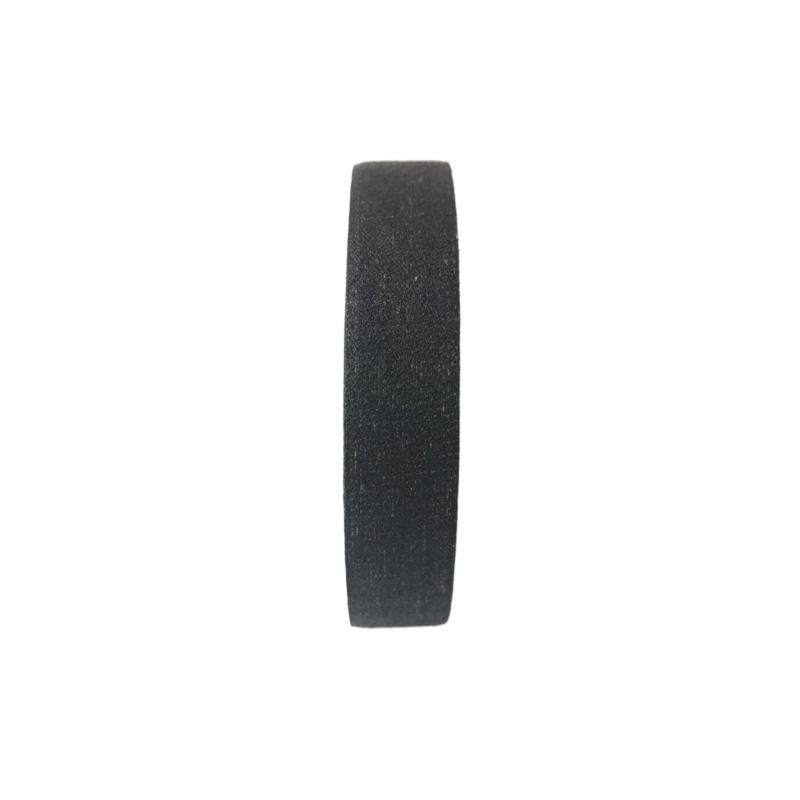The Importance of Cotton Tape for Electrical Insulation
In the world of electrical insulation, the choice of materials plays a pivotal role in ensuring safety, functionality, and long-lasting performance. Among these materials, cotton tape has emerged as a favored option due to its unique properties and versatility. This article explores the significance of cotton tape for electrical insulation, its advantages, and its applications.
What is Cotton Tape?
Cotton tape is a textile product made from pure cotton fibers, woven into a durable fabric. It is available in various widths and thicknesses, making it suitable for different applications. Cotton tape is often coated with insulation material or left untreated, depending on its intended use. Its natural composition allows for excellent breathability, flexibility, and ease of handling, making it a reliable choice for electrical insulation.
Advantages of Cotton Tape for Electrical Insulation
1. Thermal Resistance One of the critical characteristics of cotton tape is its ability to withstand high temperatures. This property is essential in electrical applications, where overheating can lead to insulation failure and potential hazards. Cotton tape can handle elevated temperatures without losing its structural integrity, making it suitable for various electrical components.
2. Electrical Insulation Cotton tape provides excellent electrical insulation properties, helping to prevent electrical leakage and protecting against short circuits. When wrapped around wires or electrical components, cotton tape acts as a barrier, effectively isolating conductive materials and ensuring safety.
3. Chemical Resistance Cotton tape is naturally resistant to many chemicals, making it suitable for use in environments exposed to oils, solvents, and other potentially harmful substances. This characteristic enhances the longevity of the tape and the electrical components it protects.
4. Eco-Friendly Material In an era where sustainability is becoming increasingly vital, cotton tape stands out as a biodegradable option. Made from natural fibers, it is environmentally friendly compared to synthetic alternatives, aligning with the growing demand for sustainable materials in various industries.
cotton tape for electrical insulation

5. Ease of Use The flexibility and lightweight nature of cotton tape make it easy to manipulate and apply. It can be easily cut to size, shaped around components, and secured in place without specialized tools, streamlining the insulation process.
Applications of Cotton Tape in Electrical Insulation
Cotton tape finds a wide range of applications across various industries
- Electrical Wiring Cotton tape is commonly used for insulating and bundling electrical wires, ensuring safety and organization in electrical work. Its breathable nature reduces the risk of moisture buildup, which can lead to corrosion and failures.
- Transformers and Motors In electrical transformers and motors, cotton tape is used to insulate windings and other components, protecting them from electrical interference and heat damage.
- Automotive Industry The automotive sector utilizes cotton tape for electrical insulation in wiring harnesses, ensuring reliable operation of electrical systems in vehicles while safeguarding against external elements.
- Electronics In consumer electronics, cotton tape is often used for insulating and protecting sensitive components, contributing to the overall reliability of electronic devices.
Conclusion
In conclusion, cotton tape serves as an invaluable asset in the realm of electrical insulation. Its thermal resistance, excellent electrical insulating properties, chemical resistance, eco-friendliness, and ease of use make it a top choice for various applications. As industries continue to prioritize safety and sustainability, the demand for cotton tape is likely to grow, cementing its place as a crucial material in electrical insulation and beyond. Whether in industrial settings or everyday appliances, cotton tape remains a reliable solution to ensure longevity and safety in electrical systems.
-
XIANGFAN Rubber Tape-Ultimate Solutions for All Your Insulation NeedsNewsJun.24,2025
-
XIANGFAN Rubber Tape-Protection for Industrial and Residential ApplicationsNewsJun.24,2025
-
XIANGFAN Rubber Tape: Superior Safety and Sealing for Demanding EnvironmentsNewsJun.24,2025
-
XIANGFAN Rubber Tape: Reliable Solutions for Every Electrical ChallengeNewsJun.24,2025
-
XIANGFAN Electrical & Industrial Tape: Powering Reliability Across IndustriesNewsJun.24,2025
-
XIANGFAN Electrical & Industrial Tape: Excellence in Every ApplicationNewsJun.24,2025
